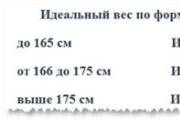February 23, what a holiday. The history of the holiday - Defender of the Fatherland Day (February 23). Unofficially celebrated as Men's Day
What kind of day is February 23rd in Russian history of the 20th century? Should we consider it a holiday, as the government considers it to be a red day of the calendar? For many in Russia, it has become the day of men, more precisely, the day of real men who serve in the army, or in the police, or in any other power structures. Or once served. Or they didn’t serve anywhere at all, but they are men and therefore they seem to have deserved gifts for February 23 and honoring along with the rest :)
Many are so accustomed to celebrating this day, with noisy feasts, gifts, and now another day off given to us by the government, that no one remembers why this holiday arose at all. How did it all start? What gave meaning to the existence of this day? Who invented that myth about the victory over the German troops near Narva and Pskov in 1918, which gave birth to the so-called Red Army? Was this birth at all and what do we celebrate then - this will be our story ...
Interestingly, in the annals of military history, a description of the valiant defense of Pskov has been preserved, but only during the Livonian, and not at all in the last year of the First World War. For almost five months, from August 1581 to January 1582, the besieged Pskov garrison, led by the governor Ivan Shuisky, successfully repelled the repeated attempts of the Polish king Stefan Batory to capture the city. In the winter of 1918, everything turned out differently.
Is the war lost?
On the evening of February 10, 1918, the fruitless Brest-Litovsk negotiations, which took place from November 20, 1917 at the headquarters of the commander-in-chief of the German Eastern Front, were interrupted after the declaration of Soviet representatives led by Leon Trotsky, who announced - unilaterally - the end of the war with the states of the quadruple alliance ( Germany, Austria-Hungary, Turkey and Bulgaria). On the morning of February 11, the Soviet government ordered the complete demobilization of the Russian armed forces. To everyone who could not understand why disband the troops without signing a separate peace, the head of the Petrograd Bolsheviks and right hand Ulyanov-Lenin, Zinoviev explained from the rostrum: an enemy attack should not be expected, since the working people of Germany and Austria-Hungary do not want to fight at all.
A week later, the German high command of Hindenburg, which had long ago transferred the most combat-ready formations to its Western Front, announced the end of the temporary truce. German military units launched an offensive along the entire line of the collapsed Eastern Front, capturing Dvinsk (later Daugavpils) on February 18, Minsk on February 20, Polotsk on February 21, Rezhitsa (later Rezekne) on February 22.
The originality of the renewed hostilities lay primarily in the swiftness of the German invasion. The enemy moved east mainly by "combat trains", encountering practically no resistance. In 14 - 16 wagons of such echelons there was a squadron of cavalry, up to half a company of infantry (with 14 - 16 machine guns and 2 - 4 cannons) and a sapper platoon.
According to the same Zinoviev, an enemy detachment, consisting of either 60 or 100 people, entered the well-fortified Dvinsk. As Russkiye Vedomosti wrote, a unit burst into Rezhitsa, so small in number that it failed to take the telegraph office on the move, which worked for almost a day.
According to the press, the Minsk Bolsheviks began to prepare to flee from the morning of February 19th. Weapons and food were brought to the station; by 18 o'clock a truck arrived with boxes and trunks, where there were 13 million rubles - the city's cash confiscated during the day. In 10 cars of the "secret echelon" there were local chiefs with security and the headquarters of the Red Guard, headed by the military commissar of the western region Myasnikov (Myasnikyan), a former assistant to a barrister and future first secretary of the Transcaucasian regional committee of the RCP (b). Unexpectedly, the workers of the railway workshops drove the engine away and demanded a salary for the last months.
The night dragged on in disputes about the permissible scale of remuneration for proletarian labor, only by dawn did both sides agree on a total amount of 450 thousand rubles. Having received the money, the workers were determined not to let out of the city several commissars suspected of major theft. In response, the Bolsheviks set up machine guns on the platforms and roofs of the cars and threatened to destroy the entire station if a steam locomotive was not immediately attached to the train. On the morning of February 20, the "secret echelon" finally set off for Smolensk, and the German cavalry approached the Belarusian capital. After a short respite in Minsk, the German detachments advanced 117 versts towards Moscow in some 18-20 hours.
On the night of February 19, Lenin and Trotsky had already hastily telegraphed to Berlin about the readiness of the Council of People's Commissars to sign peace without delay on German terms, but the German command preferred to extend the economically advantageous and easy offensive until they received official written confirmation of the sent dispatch. The next day, the Council of People's Commissars approved the night telegram and called on all local councils and military organizations to make every effort to recreate the army. At the same time, the Soviet government was by no means in a hurry to order at least a suspension of the hard-to-explain demobilization, and the corresponding commissariat continued its convulsive activity to disband military units.
The first point for recruiting volunteers for the Red Army opened in the Vyborg district of Petrograd only on February 21. On the same day, the emergency headquarters of the Petrograd Military District was established, headed by Bonch-Bruevich, head of the affairs of the Council of People's Commissars, and Lenin wrote an appeal "The socialist fatherland is in danger!" The emergency headquarters declared the capital under a state of siege, introduced military censorship and ordered the execution of "counter-revolutionary agitators and German spies."
The Soviet commander-in-chief, Ensign Krylenko, in turn, determined to defeat the insidious enemy by publishing an order to "organize fraternization" and instructed the revolutionary agitators to convince the German soldiers "of the criminality of their offensive."
But only...
rout
Meanwhile, the German military units headed for Pskov, where the headquarters of the Northern Front was located and there were extensive warehouses of military equipment, ammunition and food. Only on February 23, the Bolsheviks declared Pskov in a state of siege; On the evening of February 24, a German detachment of no more than 200 people captured the city without a fight. On the same day, February 24, Yuryev and Revel (now Tartu and Tallinn) fell.
The breakthrough, which the powerful grouping of Field Marshal von Hindenburg failed in 1915, was carried out - virtually without losses - by small and scattered German units, the speed of which was limited mainly by the degree of patency of Russian highways and railways.
“I have never seen such a ridiculous war,” recalled German General Max Hoffmann. “We fought it practically on trains and cars. You put a handful of infantry with machine guns and one cannon on the train and go to the next station. You take the station, arrest the Bolsheviks and go further".
There was practically no one to resist:
“When I first passed through the front line on the way to Brest-Litovsk, the trenches were almost empty,” Trotsky said in My Life.
“There is no army. Comrades sleep, eat, play cards, they don’t follow anyone’s orders and instructions. The Germans are well aware of all this,” testified Colonel Belovsky, chief of staff of one of the Northern Front corps.
"Lucin was taken as follows: only 42 Germans arrived in the town from Rezhitsa in two wagons. The Germans were very tired, and first went to the buffet, where they had a hearty meal. After which they detained a train of soldiers preparing to leave. The Germans lined up soldiers lined up on the platform, took away their guns and said: “Now you are free. March wherever you want, but you won’t get locomotives,” the Izvestia newspaper reported on March 1.
"There is evidence that in some cases unarmed German soldiers dispersed hundreds of our soldiers," Grigory Zinoviev admitted.
“To a large extent, the consolidated detachments turned out to be incapacitated, gave a large percentage of desertion, disobedience. The detachments of the Red Guard showed weak endurance, poor maneuverability and combat readiness,” recalled Soviet military leader Vladimir Antonov-Ovseenko.
"The army rushed to run, leaving everything," Bolshevik Commander-in-Chief Nikolai Krylenko declared in hot pursuit.
A few hours after the fall of Pskov, Bonch-Bruevich was alarmed by a telegram about a possible German attack on Petrograd. On the night of February 25, he read out this disturbing news at a meeting of the Petrograd Soviet and demanded to wake up the sleeping city with factory horns in order to move from words to deeds and urgently start recording volunteers for the Red Army. Recall that it was already February 25, after the "victory" near Narva and Pskov, as Soviet propagandists later claimed.
All to arms!
By the evening of February 25, Pravda duplicated Bonch-Bruyevich's nighttime restlessness with exclamations partly borrowed from novels about the French Revolution popular at the beginning of the 20th century: , the authorities of the Soviets, - fight to the last breath against the robbers who are advancing on you! All to arms! Merge immediately into the red socialist battalions and go win or die! "
From that day on, in different districts of Petrograd, recruiting centers really opened, where they accepted candidates for the defenders of the fatherland daily, with the exception of weekends and holidays, from 10 or 11 to 15 or 16 hours, but only on the recommendation of one or another committee (party, soldier or factory).
The constant, although not at all dense, influx of volunteers into the Red Army was ensured by the growing economic ruin. Unprecedented unemployment and impending famine served as a reliable guarantee of successful recruitment of volunteers in the future, since army rations, backed by the promise of monetary allowance, have long been considered as a sure way to stimulate the fighting spirit of the unemployed. In the diary of V.G. Korolenko reflects scenes of the recruitment of Soviet troops in Ukraine back in January 1918:
"... A man comes to join the Red Guard. They say to him: - You, comrade, do you know our platform? - I know: 15 rubles a day"
On January 14, 1918, Lenin, indignant at the “monstrous inactivity of the St. Until we apply terror - shooting on the spot - to speculators, nothing will come of it. If the detachments are made up of random, uncoordinated people, there can be no robberies. In addition, the robbers must also be dealt with resolutely - shot on the spot. The wealthy part of the population must plant for 3 days without bread, since they have stocks of other products and can get them at high prices from speculators. Apparently not placing any special hopes on the quick awakening of expropriatory activity among the working people, the leader of the world proletariat addressed his like-minded people in Kharkov on January 15: "For God's sake, take the most energetic and revolutionary measures to send bread, bread and bread !!! ".
By that time, Petrograd was already noticeably empty. If from January 1918, fleeing from repressions, the so-called bourgeoisie (together with the intelligentsia and officers) pulled out of the city, then at the end of February a mass exodus of workers driven by hunger began. A radical solution to all problems at once was found then by the leader of the world proletariat. On the morning of February 21, Lenin ordered "to move all the bourgeoisie without exception to one" under the control of tens of thousands of workers to dig trenches near Petrograd, but, after thinking it over until the evening, he did not include minor and infirm "members of the bourgeois class" in the labor battalions, ordering to mobilize only able-bodied men and women, and "resisting - to shoot."
Fulfilling the directives of the leader, Krylenko called on the inhabitants of Petrograd to defend the Soviet government, not forgetting to mention the freedom of choice of every inhabitant: whoever does not sign up for the Red Army himself will be sent to peck the frozen ground under escort. Three days after this statement, the Red Army grew, according to the Petrograd press, to almost a hundred thousand people. Hastily assembled work detachments - in fact, the militia - set off to plug the dimensionless gaps on the Western Front with their bodies.
Quite real, judging by the direction of the main attack, the threat of a German attack on Petrograd prompted the Soviet command to put forward the best military units to defend the capital.
"Towards" the enemy
People's Commissar for Naval Affairs Dybenko personally led a formation of Baltic sailors towards the enemy, who had proven themselves excellently in dispersing and shooting a peaceful demonstration of Petrograd residents on the opening day of the Constituent Assembly.
After a splendid sip in Petrograd on February 28, and taking with them three kegs of alcohol confiscated somewhere, the revolutionary sailors broke into Narva frozen in frost and fear on March 1. Having announced to the city his personal decrees on universal labor service and the Red Terror, the people's commissar for maritime affairs sat down at the headquarters and engaged in the redistribution of alcohol; the lads, on the other hand, proceeded to the unaccountable executions of their compatriots, having previously driven the inhabitants of Narva out into the streets to clear the pavements from snow drifts.
The confiscated alcohol quickly ran out, and by the evening of March 3, Dybenko, together with his headquarters, left Narva, taking telephone and telegraph sets with him. Panic seized the troops subordinated to the people's commissar; their crushing retreat was stopped only a day later. Having intercepted Dybenko in Yamburg (since 1922, Kingisepp), General Parsky, who arrived from Petrograd, tried to persuade the people's commissar to return to Narva, but he replied that his "sailors were tired" and drove off to Gatchina.
On the morning of March 4, a small German detachment occupied Narva without a fight and not without slight surprise. An experienced combat general Parsky organized the defense of Yamburg, but the German army had already stopped the offensive, since on March 3 a peace treaty was signed in Brest-Litovsk.
Four years later, Krylenko, who changed the baton of the commander-in-chief for the club of the public prosecutor the very next day after the signing of the Brest Peace, recalled with tenderness how the workers of Petrograd rose to the defense of Soviet power "on the critical night" of February 25, 1918 and defended their city in positions near Narva and Yamburg, Pskov and Luga.
Escape to Moscow
The German intervention in February 1918 was, as they began to express themselves several decades later, truly fateful. The residents of Petrograd were the first to feel this, for already on February 20 the capital was flooded with rumors about the upcoming evacuation of the Soviet government to Moscow.
The Provisional Government had previously declared the capital in danger, but did not manage to take any action to leave Petrograd. In the workers' quarters, according to a contemporary, "the readiness of the ruling patriots to abandon the capital to the Germans and flee themselves aroused the greatest indignation."
On October 6, the soldiers' section of the Central Executive Committee even adopted a special resolution: "If the Provisional Government is unable to defend Petrograd, then it is obliged to make peace or give way to another government. Moving to Moscow would mean desertion from a responsible military post." Behind all this pathetic tinsel, quite specific fears were hidden, because the transfer of government offices to another city seriously violated the plans of the Bolsheviks to seize power.
But just four months after the October coup, the leaders completely privatized the plan of the Provisional Government to move the capital to Moscow. The day after the fall of Pskov, on February 25, Bonch-Bruyevich, the head of the Council of People's Commissars, informed Lenin of the need for urgent relocation of senior dignitaries from the capital to the provinces. The chairman of the Soviet government expressed his full consent. Both Bonch-Bruevich and Lenin clearly realized that the main thing in the craft of leaders is to escape in time, they only formulated their concepts in other terms.
The leader of the world proletariat and his manager were very worried not only and not so much by the German military actions, but by the mass impoverishment and prolonged malnutrition of the inhabitants of the capital, the complete lack of order, the arbitrariness of the demobilized soldiers flooding St. Petersburg and the savagery of the revolutionary sailors who robbed the capital without hindrance. Knowing well how spontaneous indignation in the "cradle of three revolutions" could end, the leaders hurried to hide from their compatriots behind the Kremlin walls, placing numerous vigilant guards with machine guns around the perimeter of the citadel. With the aim of purely conspiracy of their plan from fellow citizens, Lenin and Bonch-Bruevich "agreed not to disclose all this, not to inform Moscow in advance, and to organize the move as suddenly as possible."
On March 1, the Presidium of the All-Russian Central Executive Committee called the initiative to evacuate government institutions rumors, despite the fact that it was already underway, and Grigory Zinoviev was already in Moscow by that time, preparing the move. In parallel, rumors were spread about the transfer of the capital not to Moscow, but to Nizhny Novgorod. All this disinformation was aimed at confusing the Social Revolutionaries who were preparing a terrorist attack on the route of government trains.
Not all Bolsheviks approved of the transfer of the capital. For example, the chairman of the Petrosoviet, Lev Trotsky, viewed this as the intention of the "bourgeoisie" to "surrender red St. Petersburg to the Germans", as well as "desertion from a responsible military post."
In order to avoid any misunderstandings, the fearful Bonch-Bruevich enlisted a report from his older brother, the general, who authoritatively confirmed the expediency of the Soviet government moving from Smolny to the Kremlin. At a closed meeting of the Council of People's Commissars on February 26, Lenin informed his comrades-in-arms of his decision to urgently move to Moscow, taking with him from each department "only the minimum number of heads of the central administrative apparatus", and also "by all means and immediately take out National Bank Since then, almost all dictators of the 20th century have repeatedly used Lenin’s tactics: during a military coup, they took, first of all, mail, telegraph and telephone exchange, and before fleeing, the State Bank.

On February 27, the Bolsheviks stopped all payments to the population and organizations of Petrograd and closed the State Bank, "so as not to pander to panic moods." Following this, telegrams from Kazan, Nizhny Novgorod, Cherepovets and other cities rained down on the Council of People's Commissars about the complete lack of money in banks, non-payment of salaries to workers and strikes due to the inability to buy bread rations.
Meanwhile, the communist press printed a special message from the All-Russian Central Executive Committee: "All rumors about the evacuation of the Council of People's Commissars and the Central Executive Committee from Petrograd are completely false. The Council of People's Commissars and the Central Executive Committee remain in Petrograd and prepare the most energetic defense of Petrograd. The question of evacuation could be raised only at the last minute in the event that Petrograd was in the most immediate danger, which does not exist at the present moment.
Trotsky explained to his comrades-in-arms, who were in no way able to understand why to flee to Moscow after the conclusion of the Brest Peace, that the change of the capital would serve as the best guarantee against the capture of Petrograd by the German army - the Germans, they say, do not need a huge hungry city without a government. The Council of People's Commissars considered it useful to postpone the publication of the official notice of the transfer of the capital until the Congress of Soviets scheduled for mid-March.
On Friday, March 8, the people's commissariat of justice retreated to Moscow "for more peaceful and productive work," and on Saturday, March 9, the leadership of the Cheka left, taking with them two million rubles to cover future expenses. Before leaving, the Chekists managed to establish the Petrograd branch of the punitive department and offer their colleagues to arrest "prominent capitalists" as hostages.
Late Sunday evening, March 10, under the heavy guard of the Latvian riflemen, the leader of the world proletariat set off. His train with unlit car windows quietly, as if stealthily, departed from an abandoned half-station on the outskirts of Petrograd and just as imperceptibly arrived at the capital city on the dark frosty evening of March 11. Subsequently, Bonch-Bruevich considered the secret organization of the transportation of the Soviet government to Moscow one of his most important services to the party.
On the third day after the arrival of the leader, the Extraordinary Congress of Soviets opened in Moscow. After much bickering, its delegates ratified the Treaty of Brest-Litovsk and on March 16 granted Petrograd the status of a provincial city. For a country where symbols often replaced reality, the deprivation of Petrograd of its former title meant, in fact, a political turn towards pre-Petrine isolation and capital isolation of the population from the "pernicious influence" of Western democracies. The Mensheviks tried to state their point of view on what was happening, however, as soon as they began to talk about "discrediting the revolution", the inexorable chairman of the congress, Sverdlov, deprived them of the floor, for which he immediately received the nickname The Plug.
The members of the Central Committee of the Bolshevik faction of the RSDLP, who gathered in Smolny, in the absence of an army and the ability of individual detachments of the Red Guard to defend Petrograd, agreed to accept the German ultimatum. For the sake of maintaining his power, Lenin was ready to subscribe to any terms of an "obscene peace" with the states of the quadruple alliance. "For a revolutionary war, an army is needed, but there is none," he harshly argued the decision imposed on his associates. As usual, Zinoviev echoed the leader of the world proletariat: "From experience last days it is clear that there is no enthusiasm in the army and the country ... only general fatigue is noticed.
On February 23, 1918, at 10.30 am, Germany presented its peace conditions, demanding an answer to them no later than 48 hours later.
The Soviet government was to:
- recognize the independence of Courland, Livonia, Estonia, Finland, Ukraine;
- withdraw their troops from their territory;
- make peace with Ukraine;
- transfer Anatolian provinces (Batumi, Kars) to Turkey;
- demobilize the army;
- to disarm the fleet in the Baltic and Black Seas and in the Arctic Ocean;
- recognize the Russian-German trade agreement of 1904, which was unfavorable for Russia;
- to give Germany the right of most favored nation in trade until 1925;
- allow duty-free export to Germany of ore and other raw materials;
- stop agitation and propaganda against the powers of the Quadruple Alliance.
On the same day, the German demands were considered at a meeting of the Central Committee of the RSDLP(b) and at a joint meeting of the Central Committee of the RSDLP(b) and the Central Committee of the Party of Left Socialist Revolutionaries.
At a meeting of the Central Committee, Lenin, with great difficulty, threatening to resign, managed to achieve agreement on these conditions.
At a joint meeting of the Central Committee of the RSDLP(b) and the Central Committee of the PLSR, the majority spoke out against peace, but decided to refer the issue to the factions of the All-Russian Central Executive Committee.
At 3:00 am on February 24, after a roll-call vote, the majority of the members of the All-Russian Central Executive Committee spoke in favor of accepting the German peace terms and sending a delegation to Brest to sign a peace treaty.
Despite the categorical objections of 85 participants, 116 members of the All-Russian Central Executive Committee, in the dead of night, accepted the conditions of unconditional surrender dictated by the German government; 26 people abstained from voting.
At 7:00 am, the decision of the All-Russian Central Executive Committee was brought to the attention of the German leadership, which, in turn, demanded that the Soviet delegation arrive in Brest no later than 3 days later.
But the fact that nowhere, not a single word is mentioned about the creation, and even more so about the victorious offensive of the Workers 'and Peasants' Red Army, looks surprising.
The writer Yuri Felyptinsky, a witness of those years, writes: “But the most surprising thing (in the German offensive on February 23) was that the Germans advanced without an army. They acted in small scattered detachments of 100-200 people, and not even regular units, but assembled from volunteers. Due to the panic that reigned among the Bolsheviks and rumors about the approach of the mythical German troops, cities and stations were left without a fight even before the enemy arrived. Dvinsk, for example, was taken by a German detachment of 60-100 people. Pskov was occupied by a small detachment of Germans who arrived on motorcycles " (The collapse of the world revolution. S. 259-260).
So it turns out that there were no victories over the German army on February 23, nor the German army itself advancing on Petrograd.
Newspapers of the end of February 1918 do not contain any victorious reports. And the February newspapers of the no less militant year of 1919 do not rejoice over the first anniversary of the "great victory."
Red day of the calendar?
In fact, on January 10, 1919, the chairman of the Higher Military Inspectorate, Nikolai Podvoisky, proposed to celebrate the anniversary of the decree on the creation of the Red Army on January 28. However, the memorandum sent by him to the All-Russian Central Executive Committee was not considered in time due to bureaucratic confusion.
Then they decided to combine the anniversary of the army with " Happy Red Gift"- the collection of food and essentials for the troops. In 1918, it took place on February 17, but in 1919 the date fell on a weekday, and the event was moved to the next Sunday, February 23.
So the day of the Red Army - the "gravedigger of capital" - was celebrated on Sunday, February 23, 1919, and it was marked, as expected, by "big rallies" in theaters and factories.
People's Commissar for Military Affairs Lev Trotsky, who unexpectedly invented this holiday out of nothing, announced a competition for the best march of the Red Army.
The civil war, famine and devastation, however, did not at all contribute to the rosy mood of the working people, therefore, probably, in 1920 and 1921, the day of the Red Army was simply forgotten.
But in 1922, the chairman of the Revolutionary Military Council, Trotsky, arranged a military parade on Red Square on that day, thereby laying the tradition of an annual nationwide celebration. Exactly at noon on February 23, "the organizer and beloved leader of our army" accepted the report of the parade commander and, going around the shelves, shouted a fiery speech out of habit, timing the fourth anniversary of the Red Army to coincide with the publication of Lenin's decree on its creation.
Here again there is a discrepancy. The decree on the organization of the Red Army was adopted at a meeting of the Council of People's Commissars on January 15, 1918 (hereinafter, the dates before February 1, 1918 are indicated in the old style.) The next day, January 16, Lenin signed a decree on the allocation of 20 million rubles from the state treasury for needs again formed military formations. Both decrees were published on January 19, 1918.
Nevertheless, Trotsky insistently repeated in 1923: the decree on the organization of the Red Army by the Council of People's Commissars was issued precisely on February 23, 1918. That is, in the words of Mikhail Bulgakov, "a citizen who lied."
The metropolitan press, on the occasion of the fifth anniversary of the Red Army, indicated its strategic tasks, placing an unambiguous signature under the image of the globe covered with Budyonovka: "The Red Army has great goals." Trotsky did not prepare a military parade for this day - the "outstanding leader and educator" of the Red Army had already played enough soldiers in the squares and was now carried away by his own health and inner-party strife.
With the disgrace of Trotsky, the official justification for the holiday was also slightly transformed.
By the tenth anniversary of the Red Army, it suddenly became clear that on February 23, 1918, the Soviet government had already begun to form the first detachments of the Red Army, although the new People's Commissar for Military Affairs Voroshilov still associated "ceremonial events" with the aforementioned Leninist decree. Instead of portraits of Trotsky and his associates, the press was then adorned with photographs of Lenin, Frunze and Voroshilov.
In 1933, at a solemn meeting in honor of the 15th anniversary of the Red Army in 1933, People's Commissar of Defense Kliment Voroshilov admitted in a speech that "the coincidence of the anniversary of the Red Army on February 23 is rather random and difficult to explain and does not coincide with historical dates."
In subsequent years, at solemn meetings on the occasion of the next anniversary of the Red Army, the military leadership made pompous speeches with ritual threats, but without intelligible excursions into the recent past.
myths
And only in September of the same 1938, when the Pravda newspaper for the first time published "A Short Course in the History of the All-Union Communist Party of Bolsheviks", did the working people finally receive the only correct interpretation of the national holiday:
“In response to the cry “The socialist fatherland is in danger!” thrown by the party and the Soviet government, the working class responded by intensifying the formation of Red Army units. a resolute rebuff was given. The day of repulse to the troops of German imperialism - February 23 - became the birthday of the young Red Army. "
Such a purely mythological explanation of the national holiday is easily and firmly rooted in the mass consciousness. In the difficult years of the war, when every weighty word strengthened the fighting spirit of the army in the field, Supreme Commander-in-Chief Stalin intensified the previous accents, declaring that on February 23, 1918, the Red Army detachments "utterly defeated the troops of the German invaders near Pskov and Narva."
The sacred wording of the "Short Course in the History of the All-Union Communist Party of Bolsheviks" remained frozen for almost 20 years, and only during the Khrushchev "thaw" did a thaw appear in it. The "decisive rebuff" near Narva disappeared from it completely without a trace, but near Pskov, the Red Army created by Lenin put up "stubborn resistance to superior enemy forces and inflicted a serious defeat on them."
In fact, the task of the Trotskyist, and later Stalinist leadership in inventing this myth was simple and understandable: they all took a direct part in the clownish peace negotiations, the inglorious organization of "resistance" to the German units, and then the shameful surrender of Germany in Brest. Displacing from memory the unpleasant impressions associated with the shameful capitulation, Trotsky appointed a national holiday for February 23. Continuing the tradition of the annual celebration, Stalin tried to completely oust the shameful stain on the past of his empire from the consciousness of his subjects.
The myth was a glorious success - in best traditions Soviet propaganda. However, despite the complexity of the history of this holiday, February 23 - Defenders of the Fatherland Day - has been and remains a professional day for the Russian military. That is how, in popular use (officially for some time it was called "The Day of the Red Army's victory over the German Kaiser troops in 1918", which was completely nonsense) this holiday has been called since 1993, restored a few years after the official silence of the era of the collapse of communism in 1991. In 2002, it was made an official non-working day and excluded from the title "The Day of the Red Army's Victory over the Kaiser's troops of Germany in 1918". And the point here, as it seems, is no longer in the dates and real events behind these dates.
What to do?
The main argument of the supporters of the preservation of this day is the fact that February 23 is celebrated not only in Russia. After the collapse of the USSR, this holiday became de facto international.
However, let's see where else it is celebrated? Defender of the Fatherland Day is also celebrated in Kyrgyzstan (non-working) and in Belarus. In Belarus, it continues to be a working day. But we are much more united by the date celebrated by our peoples on May 9! But February 23 is worth nothing ...
Of course, each of us would like us to celebrate the true day of the Defender of the Fatherland. One could join the celebration of "Men's Day" by dozens of countries around the world. The UN gave this holiday international status at the same time as March 8 and recommended that it be celebrated on the first Saturday of November.
Or you can search your history. Someone proposes to celebrate the day of victory in the Battle of Kulikovo, someone the day of the Battle of Borodino.
In Russia, before the Bolshevik coup of 1917, the holiday of May 6, the Day of St. George the Patron of Russian soldiers, was traditionally considered the Day of the Russian Army. Since the beginning of the 90s, this holiday has been celebrated annually in Russia by the Russian Orthodox Church and military-patriotic, Cossack and public associations.
Perhaps someday it will be celebrated and Russian army. On this Day, the soldiers of the Russian army participated in parades, on this day they awarded St. George's crosses and other awards, on this day they presented and consecrated the Banners, and at the end they visited churches and commemorated all the soldiers who died for Russia, and for those who adhere to such an interpretation History February 23 remains only an excuse for drinking "comrade atheists."
Five dates February 23
On this day, an event really happened that deserves a place in the annals of Russian military history: the Ice Campaign of the Volunteer Army began. Without knowing it, the Soviet people celebrated the birthday of the white movement for decades.
The Chairman of the Council of People's Commissars, he is the People's Commissar of Defense of the USSR, he is also the Supreme Commander I. Stalin issued an order. It summed up the results of the eight-month struggle against the Nazi invaders.
And they, these results, were terrible. Million losses. Hundreds of cities surrendered, entire republics ... But there were also encouraging lines: the crushing defeat of the Germans near Moscow!
British Prime Minister Winston Churchill addressed us with a message on the occasion of the anniversary of the Red Army: “On this solemn occasion, I convey an expression of the admiration and gratitude with which the peoples of the British Empire follow their exploits, and our confidence in the victorious end of the war ... The old fox was well aware that if not the Red Army, which stood in the way of the brown plague, then the fate of all of Europe would have been sealed.
And here is what Franz Halder, Chief of the General Staff, wrote in his diary on February 23 ground forces Nazi Germany: "The expected offensive of the enemy in honor of the day of the Red Army did not happen. The situation is without significant changes ..."
Halder was cunning, reassuring himself. The fighting was fierce everywhere. And it is not for nothing that Hitler will soon dismiss his chief of staff, as well as almost two hundred other generals. The main reason for this was the failure of the blitzkrieg.
By this day, the Red Army had prepared a gift of gifts, defeating the Germans at Stalingrad and capturing almost two hundred thousand soldiers and Field Marshal Paulus.
In his next order, Stalin summed up the twenty-month struggle against the Nazi hordes. The latest successes of the troops of the Leningrad and Volkhov fronts in the Mginsky direction were especially noted. And although the operation did not give great territorial results, it forced the enemy to bring up large reserves, removing them from other sectors.
A telegram was received in Moscow from US President Franklin Roosevelt: “Please accept our deep admiration for the Red Army, its magnificent achievements unsurpassed in all history. It stopped the enemy near Leningrad, near Moscow, in the Caucasus, and, finally, in the immortal great attack."
On the eve of the 26th anniversary of the Red Army, our troops crossed the Dnieper, and the Presidium of the Supreme Soviet of the USSR adopted a Decree on awarding the title of Hero of the Soviet Union to more than two hundred generals, officers, sergeants and privates. Several thousand soldiers were awarded orders and medals.
The third and final period of the Great Patriotic War began. There were over six million soldiers and commanders in the ranks of the active army. And in service there were five thousand tanks, ninety thousand guns, eight and a half thousand aircraft. It was a force capable of finally crushing the enemy.
At 02:00 local time, the deportation of the Chechen-Ingush people began - the first echelons were sent to their destinations.
Order of the Supreme Commander-in-Chief No. 5 on the results of the winter offensive. Our land has already been cleared of invaders, an unprecedented blow has been dealt from the Baltic to the Carpathians.
The Second and Third Belorussian Fronts are fighting in the area of Koenigsberg, the First Ukrainian Front has reached the Oder. The Vistula-Oder, Warsaw-Poznan, Sandomierz-Silesian operations have been completed. Soviet people use every minute to listen to the radio: how far have our people advanced, what cities have they taken?
Old "friend" Winston again sent a message: "Future generations recognize their duty to the Red Army as unconditionally as we did, who lived to witness these magnificent victories ..."
Ahead were two more months of fierce fighting and the most stubborn - for Berlin.
The history of the holiday on February 23 is rich in various unexpected events. The celebration was repeatedly renamed and transferred to other dates. The emergence of a significant event was associated with the birth of the Red Army, but in modern Russia the holiday has been transformed from a purely military one into a more universal version, briefly called Defender of the Fatherland Day. Today, February 23, the country is celebrating very widely and magnificently, and all males, both adults and children, accept congratulations. On the eve of a significant day, various ceremonial events are held in educational institutions, enterprises and organizations, where they honor the strong half of humanity and in every possible way admire such masculine qualities as courage, courage and the ability to always come to the rescue of those who need it.
February 23 - the history of the holiday and its modern meaning in Russia
The history of the holiday on February 23 in Russia is rooted in the distant past, directly related to the moment of the overthrow of the tsarist regime and the Decree on the creation of the Red Workers 'and Peasants' Army, issued by the Presidium of People's Commissars of the young Soviet Republic. This significant event happened on January 15, 1918, and the treasury allocated 20 million rubles for the formation of combat units, which at that time was considered a truly huge amount.

In Petrograd on February 21 began active work the first point for the reception of volunteers, and Vladimir Lenin spoke on the streets and squares, urging citizens to join the ranks of the defenders of the young Socialist Fatherland. The set went quite tensely, but in the end the required number of people was found and the freshly assembled detachments were able to repulse the external and internal enemy.
Initially, they wanted to celebrate the anniversary of the Red Army on the day the decree on its creation was signed, then they considered February 17 as a holiday date, but in the end they singled out the nearest Sunday for the celebration, which at that moment fell exactly on February 23. True, for some mysterious reason, the military holiday did not take root and for four years it was practically not remembered either in society or at the state level.
The date found a second life only in 1922, when the Presidium of the All-Russian Central Executive Committee issued a decree on the solemn celebration in the country of the fourth anniversary of the formation of the victorious and glorious Red Army. In 1923, a significant day was celebrated very widely and pompously, and not only in the capital, but in all, even the most remote regions of the state. It was then that the date first received an official name - Red Army Day, and this name was subsequently approved by the Revolutionary Military Council of the young Soviet Republic.
During the reign of Joseph Stalin, the attitude to the holiday was somewhat changed. At the insistence of the authorities, the date was surrounded by various myths and a lot of legends were created around it, saying that on February 23, 1918, the brave Red Army soldiers dealt a crushing blow to the enemy troops stationed near Narva and Pskov. Thus, an attempt was made to destroy the unpleasant facts for the country about the defeat and the signing of the ultimatum presented by the German side.

After the victory of the USSR in the Great Patriotic war the perception of February 23 in the country changed again. The army was admired, and the military, literally, was carried on their hands. Since 1946, the holiday has become one of the most beloved among the people, and almost every family considered it their duty to celebrate it. Around the same time, it began to be called the Day of the Soviet Army and Navy. Years passed and the holiday gradually lost its purely military coloring. Gradually, from February 23, they began to congratulate absolutely all men, including even those who, due to certain life circumstances, did not serve in the army.
The meaning and meaning of the holiday on February 23 in modern Russia

The meaning and modern meaning of February 23 in Russia are somewhat different from what was accepted in the USSR. In 1995, deputies of the State Duma tried to assign a new name to the significant date, containing information about the victory of the Red Army over the military formations of Kaiser Germany. However, this long and not entirely true name lasted only a few years.
In 2002, the State Duma returned to the discussion of this issue and renamed February 23 as Defender of the Fatherland Day. In addition, the date was declared non-working and the connection of this event with the hostilities of 1918 was finally severed.
In recent years, the military coloring of the holiday has faded somewhat, and it has become much more universal. It is celebrated not only by men who bravely defend the borders of our Motherland from enemies, but also by those who have never held weapons in their hands and protect only their family and loved ones from dangers and adversities. In addition to adult representatives of the stronger sex, on February 23, congratulations are received by boys, young men and young people who have yet to show themselves as defenders of both the Fatherland and their relatives. The warmest, sincere and kind words on this day are also said to brave, courageous women who have dedicated their lives to serving in the army, law enforcement agencies or structures designed to protect the population from various dangers and cataclysms.
The celebration of February 23 is held in all cities brightly and magnificently. Welcoming words to the heroes of the occasion are spoken by the first persons of the state, public figures and representatives of the deputy corps. Flowers are laid at the monuments and memorials of heroes and candles are carried. In the evening, the sky of the capital and large federal centers is illuminated by festive fireworks, symbolizing the power, strength and dignity of Russian weapons and the courage of Russian soldiers.
History February 23 briefly for children - class hour in elementary school

WITH a brief history origin of the feast of February 23 pupils elementary school can be introduced in class. Burdening children of 7-9 years old with too detailed a narrative with a lot of details is not worth it. The guys simply will not be able to perceive the abundance of historical facts that do not always have an unambiguous coloring. But of course, it is worth saying about the heroism of the Red Army soldiers and some important conquests of the Red Army, as well as about what exactly the Russian soldiers did in order to stop the German attack on the Soviet Union.
In the second part of the event, it is necessary to mention that today the holiday is not the prerogative of the military alone and promotes the qualities that every male citizen should possess, regardless of age, profession and social status. Children must understand that on February 23, the country honors brave people with an open heart, who are always ready to help, regardless of who needs it, the state or an individual.
February 23 - story and video presentation for high school students

When telling high school students the story of the appearance of such a holiday as February 23 in the calendar, it is worth supplementing your speech with a bright and informative video presentation. It will be interesting for children aged 14-16 to see footage of the chronicle of those times or excerpts from thematic feature films. You can prepare for your speech musical accompaniment and give schoolchildren the opportunity to listen to classical and modern songs dedicated to the heroes of various wars. It would be appropriate to mention not only the heroic military, but also the employees of various rescue services, who no less often risk their lives to help people in completely peaceful conditions.
In order for the words to make a more vivid impression and be better remembered, it is worth inviting one of the veterans, active military, representatives of the Ministry of Emergency Situations, law enforcement agencies or firefighters to the event. These people will be happy to tell students about the peculiarities of their professions and show the children that it is possible to protect people not only with weapons in their hands on the border of the state, but also in absolutely peaceful civilian conditions.
Defender of the Fatherland Day is annually celebrated in Russia on February 23 as a national holiday. It originates during the existence of the Soviet Union, when the holiday was celebrated in honor of the Soviet Army and Navy.
The history of the establishment of the holiday
There was no official document establishing February 23 as an official Soviet holiday. For the first time in this vein, February 23 is mentioned in 1918, when mass rallies were held in Moscow and other cities of the country, at which workers were urged to defend their Fatherland from the advancing German troops. Then began the mass entry of volunteers into the Red Army and its formation.
A year later, the citizens of Russia for the first time celebrated February 23 as the anniversary of the Red Army. However, in 1920-1921 this holiday was not celebrated.
In subsequent years, the country widely celebrated the fifth anniversary and decades of the Red Army. Moreover, if January 28 was considered the anniversary of the formation of the Soviet Armed Forces, then February 23 was celebrated - on the anniversary of the publication of the decree of the Council of People's Commissars, "which laid the foundation for the Workers 'and Peasants' Red Army."
© Sputnik / RIA Novosti
February 23 was considered the date of birth of the Red Army since 1938, when a fundamentally new version of the origin of the holiday was presented, not related to the decree of the Council of People's Commissars. This time he was associated with the battles of the Red Army against the German troops in 1918 near Narva and Pskov.
In 1951, another interpretation of the holiday appeared. In the "History of the Civil War in the USSR" it was indicated that in 1919 the first anniversary of the Red Army was celebrated in connection with the mobilization of workers "to defend the socialist Fatherland, the mass entry of workers into the Red Army, the broad formation of the first detachments and units of the new army."
Already after the collapse of the USSR, February 23 began to be celebrated in honor of the victory of the Red Army over the Kaiser troops of Germany in 1918.
After 11 years, the words about the victory of the Red Army were excluded from the official description of the holiday, and the concept of "defender" was stated in the singular.
In December 2001, the State Duma supported the proposal to make February 23 a non-working holiday.

© Sputnik / Ramil Sitdikov
February 23, due to established traditions, has become a state national holiday dedicated to all generations of defenders of the Fatherland. Throughout their centuries-old history, Russians have selflessly defended the sovereignty and independence, and sometimes the right to exist, of the Russian state in numerous wars.
The servicemen of the army and navy of modern Russia responsibly fulfill their military duty, reliably ensuring the protection of national interests and the military security of the country.
real men day
On February 23, Russians honor those who served or are serving in the ranks of the country's Armed Forces. But most Russian citizens tend to consider February 23 as the Day of real men, defenders in the broadest sense of the word.

© Sputnik / Evgeny Biyatov
February 23 is celebrated with a festive artillery salute in the hero cities of Moscow, St. Petersburg, Volgograd, Novorossiysk, Tula, Sevastopol, Smolensk and Murmansk, as well as in cities where the headquarters of military districts, fleets, combined arms armies and the Caspian flotilla are deployed.
February 23 in South Ossetia
In South Ossetia, February 23 is considered a holiday and non-working day. In the republic, February 23 is celebrated with a solemn meeting of the public, the presentation of state awards defender of the Fatherland. February 23 is considered a holiday date in connection with the formation of the Ministry of Defense of South Ossetia, this year the department will celebrate its 24th anniversary.

photo from the archive of the Ministry of Emergency Situations of the North Ossetia-A
However, in the minds of the population, the holiday has taken root, as in Russia, since Soviet times. They honor not only employees of law enforcement agencies, but also all men, since in the almost 20-year history of South Ossetia's wars for freedom and independence, both people in uniform and formally "civilian" participated in them equally courageously.
How to tell children what this holiday is and why it is celebrated? I want to say right away that the answer to this question is ambiguous.
No matter how the history of this holiday develops, for our country today it is considered a holiday of real and future men - defenders of the Fatherland. We congratulate our dads, grandfathers, uncles, boys on this valiant holiday. Nevertheless, this holiday is rightfully celebrated by women who serve in military units, in hospitals, and in reserve. After all, defending the Fatherland is everyone's business!
February 23- a holiday of courage, courage, courage and courage! Even a small boy can be a protector. Let it not yet be the Fatherland, but to protect the weak, the defenseless is a very important matter. Helping mom and dad with household chores, moving an elderly person across the road, protecting the weak is not a task for a weakling, but for a real man.
So what is the history of this holiday?
The emergence of this holiday is associated with the formation in Soviet times of the Red Army, which was assembled to fight the Kaiser's Germany (German Empire). In the winter of 1918, the Workers 'and Peasants' Red Army (RKKA, January 28) and the Workers' and Peasants' Red Fleet (RKKF, February 13) were created. Workers who voluntarily expressed a desire to serve in the ranks of the armed defenders of the Fatherland were accepted into the Red Army and the Red Navy. The decree on creation was signed by V.I. Lenin. The purpose of the creation was, rather, agitational nature.
The holiday was first celebrated a year later in 1919. In the 1918-1919s. the Soviet army was in poverty and needed food and clothing, so the people collected parcels with the necessary things for the front. Such a collection of things served as an occasion to officially celebrate a new revolutionary holiday - RED GIFT DAY.
In 1919, they remembered the creation of the Red Army and the RKKF in 1818 and decided to celebrate the anniversary at the same time along with the Red Gift Holiday. The date fell on a working day in February, so the celebration was decided to be postponed to the first nearest day off. This day was February 23, as reported by the Pravda newspaper.
In 1920 and 1921 the holiday was not celebrated. They remembered him only in 1922. The chairman of the Revolutionary Military Council, Trotsky, arranged a military parade on Red Square that day, thus laying the foundation for the tradition of an annual nationwide celebration.
For a long time it was believed that on February 23, 1918, Soviet troops defeated the German invaders near Pskov and Narva. But the chronicles say otherwise. In 1918 there were no serious wars, let alone victorious ones. On the contrary, in February 1918, our troops ceded the cities of Pskov and Narva to a few German detachments without a fight, as evidenced by the newspapers. Nevertheless, there could be no negative examples in the minds of the Soviet people, and with light hand I.V. Stalin, our flight turned into a victory, and the glory of the Russian army became indestructible.
Since 1923, by order of the Revolutionary Military Council of the Republic, February 23 was annually celebrated as the Day of the Red Army.
Since 1946, the holiday has been called the Day of the Soviet Army and Navy.
In February 1995, the State Duma of Russia adopted the federal law "On the Days of Military Glory of Russia", in which this day is named as follows: " February 23 - Victory Day of the Red Army over the Kaiser troops of Germany in 1918 - Defender of the Fatherland Day».
In 2002, the holiday officially became a non-working day.
On March 24, 2006, the State Duma decided to exclude from the official description of the holiday in the law the words "Day of the victory of the Red Army over the Kaiser troops of Germany (1918)". And it's understandable why.
You have the right to tell your child about the origin of the holiday in your own way.
It would probably be more justified Defender of the Fatherland Day to celebrate on a more memorable day for our country, when the Russian people showed in practice how we can defend our Motherland. How many victories were in Rus'! Nevertheless, we still need such a holiday. And today we celebrate it on February 23, we celebrate it not as the birthday of the Red Army, but as the Day of real men who are ready and able to defend us and our Motherland.
In Russia, before the Bolshevik coup of 1917, it was traditionally considered the Day of the Russian Army holidaySt. George the Patron of the Russian Army, Russian soldiers.
Other men's holidays:
- International men's day- the first Saturday of November (adopted by M.S. Gorbachev)
- Day of Heroes of the Fatherland- December 9, celebrated since January 25, 2007
- fathers day- an annual holiday in honor of the fathers, celebrated in many countries (Sunday June 3). In Russia, they want to make this holiday on the 2nd Sunday of June.
This holiday had several names: the Day of the Soviet Army, the birthday of the Red Army, the birthday of the armed forces and the navy.
Now this holiday is called the Day of Defenders of the Fatherland. But somewhere inside we all call it simply - the day of real men. After all, they are all defenders in their essence. On February 23, they congratulate dads, grandfathers, brothers, loved ones.
Why exactly February 23 is considered the Day of Defenders of the Fatherland, and not any other date? The history of this holiday is as follows:
Immediately after the victory of the armed uprising in Petrograd, counter-revolutionary actions fell upon the young republic of Soviets, and the Soviet government had to wage an active struggle against them. At that time, the Red Guard detachments of revolutionary soldiers and sailors were the Armed Forces of Soviet power.
The Soviet government, in order to protect the Soviet state, began organizing regular armed forces. On January 28, 1918, the chairman of the Council of People's Commissars V. I. Ulyanov (Lenin) signed a decree "On the organization of the workers' and peasants' Red Army."
On February 23, 1919, the day of the Red Army was held in Petrograd under the slogan of defending the socialist Fatherland from the "Kaiser troops". At a meeting of the Petrograd Soviet of Workers' and Red Army Deputies, dedicated to the anniversary of the creation of the Red Army, Ya. M. Sverdlov delivered a welcoming speech, emphasizing that the Red Army was created primarily against a foreign enemy. In 1923, in honor of the Day of the Red Army and Navy, an order of the Republican Revolutionary Military Council was issued for the first time.
February 23 was celebrated as the birthday of the Red Army in honor of the victory near Narva and Pskov over the German troops. The day of the first victory was the birthday of the army. This, as it were, marked her fate for the future. The army began to be called Soviet, and February 23 was annually celebrated in the USSR as a national holiday - the Day of the Soviet Army and Navy.














